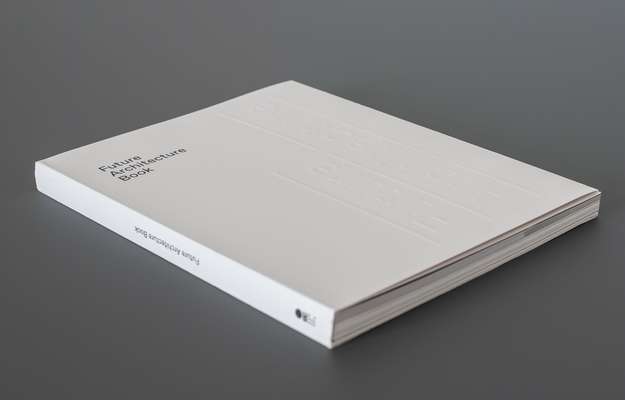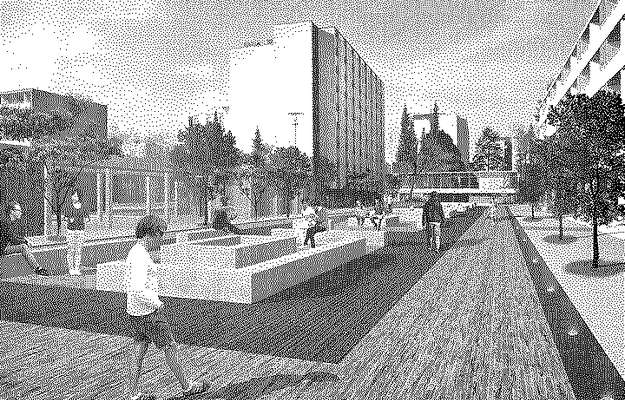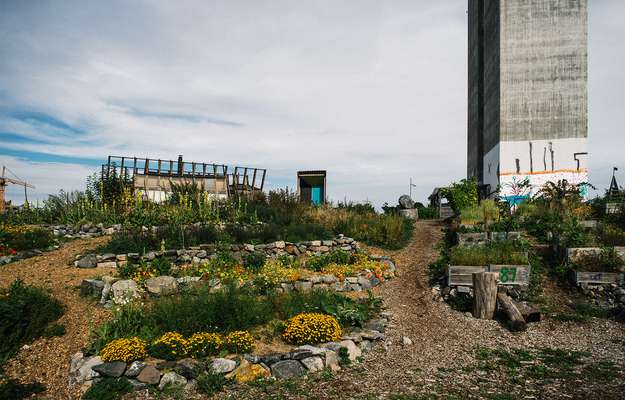Mapping the Margins
Mapping the Margins is a series of maps and documentations, identifying, for the first time, all the women associations, local agriculture cooperatives as well as abandoned buildings in Thesprotia province, in order to create an active platform where many cooperatives can find a space to grow. Through these rural commons, we aim to merge formal, non-formal and informal learning models and create encounters with artists, local institutions and inhabitants from and for the region.
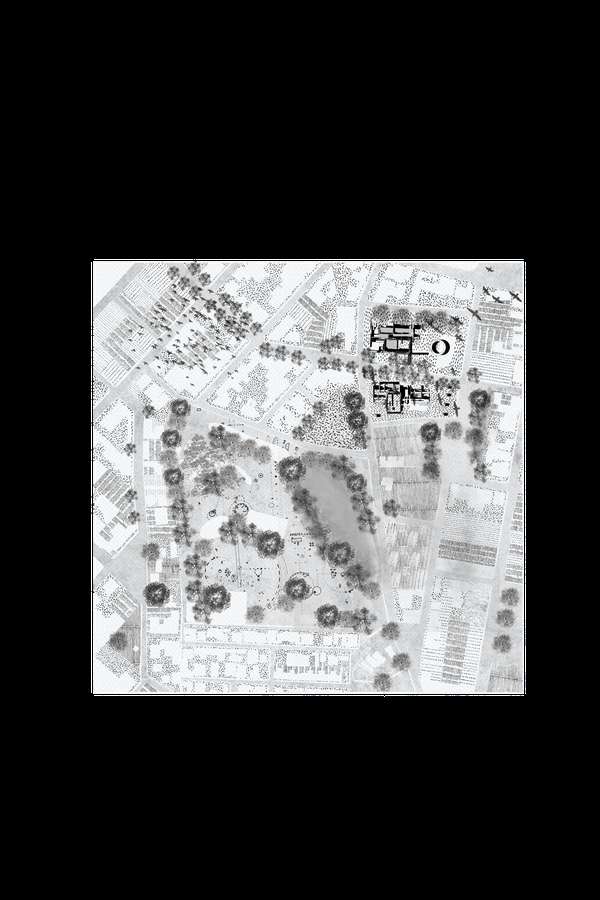
Berlin, New York, Athens, where is your basis?
CS: The truth is that I develop my professional practice through constant collaborations with local initiatives, professionals and different institutions. I am a Digital nomad I would say. If you ask about my physical basis is in Berlin, where I spend three or four months. The rest of the year I travel a lot, try to be as close as possible with communities that I work with.
Christina, please talk about your work in Terreform with Michael Sorkin. He has been a very important mentor and friend who has influenced your work a lot?
CS: Yes, this is true and I am happy that you are taking me some years back. This is a very sensitive matter for me because as you know we lost Michael a year ago because of COVID and since then all Terreform members are mourning for this loss.
I joined Terreform team after my Masters studies in New York, when we started to work in Yachay in the North of Ecuador, which was a new Technopole that the government was planning to build from scratch in one of the most fertile lands in the country. We started to investigate during my Masters this topic and Michael suggested me to join Terreform team, which was for me an amazing experience. Not only we manage to focus deeper on Technopoles, but we also travelled to Ecuador, we developed a lot of alternative plans, we talked with the local municipality how to support the local communities and protect this territory. We developed alternative plans, on how many new educational functions can be re-located in the existing near town called Ibarra. We also investigated a lot the integration between formal and informal knowledge. I don’t like to use words scientific or non-scientific, because I believe that this distinction has to do more with power and less with the production of knowledge. We were trying to highlight the local knowledge. This was one of the most interesting project that I was working while I was in Terreform.
We worked in Gowntown, where we interrogated the expansion of the Columbia University in Upper West Manhattan. I also worked in this amazing project that Michael initiated ten years ago called New York City Steady State where we investigated how New York can be self sustainable and self -sufficient in its own boundaries. For me the most important lesson that I’ve learned in Terreform was regarding the work ethics and this amazing environment that we built together. Michael was a very generous and open person. He managed to bring together people from different places around the world and involved them on projects that were really interesting. He was very generous in this sense, offering his knowledge, his guidance, giving the space to every person who wanted to investigate, publishing books from independent authors or people that they couldn’t find publishers. In this sense he was a true mentor and a real light. Although, I left New York four years ago I really miss his light.
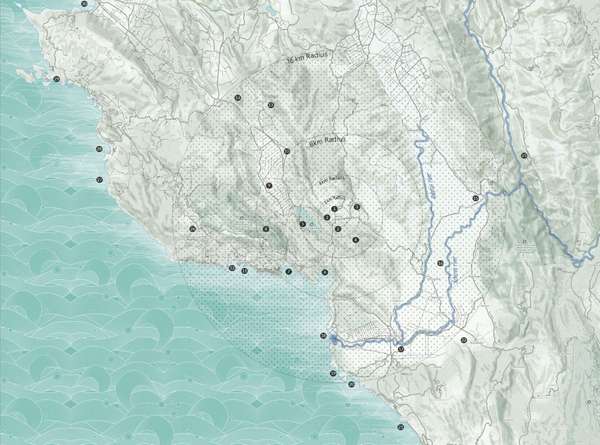
Another part of your professional life is TiriLab?
CS: TiriLab is something I was dreaming many years and have imagined since I left Greece and moved to New York. I had this dream of how to return to my hometown, in Morfi, a smaller village where I was born, be closer to nature, work with the community there and different women initiatives. In TiriLab, we work mostly with women through our recent projects. These projects challenge traditional gender norms in rural areas, rediscovering narratives of women from different ethnic groups. Everything started, when I invited 35 amazing friends from all over Europe to come and spend some days in the village. They stayed with local families and we managed to create food encounters, where we were cooking together and meeting different women initiatives from the area. We called it Summer of Nothing. The idea was not to propose solutions as professionals but to go to rural area, stay, listen and understand the life that unfolds in such areas. This was the beginning of TiriLab.
A lot of local initiatives were organised by women, these small informal or formal groups managed to keep these villages alive during the economic crisis and they are also responsible of the cultural life of these villages. We wanted to empower these women initiatives, give them visibility and foster their multi-layered identity. A big step was last year when Tirilab got selected to be part of Future Architecture Platform encounter in Ljubljana, where I met different other groups and exchanged experiences. After that TiriLab expanded.
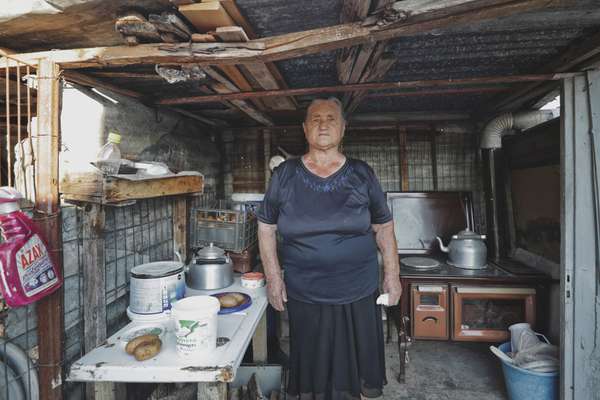
Oikeiology, Satellite Kitchens, Epirotopia - could you explain me these projects briefly?
CS: They are ongoing projects that started last year after I returned from Ljubljana. Oikeiology started as a pedagogical experiment, we wanted to bring to the forefront all the livelihood relationships between communities and natural bodies. It came to our minds in May, when the Greek government passed a law of abolishing the protection of NATURA 2000 areas in the whole country. Specifically in Thesprotia, in the region where we work in Tirilab, more that 45% of the natural areas are protected. The new law will leave these areas without any legal legislation for protection. We wanted to bring to the attention of local municipalities and also neighbourhood communities how to keep these ecosystems alive, how to involve the idea of eco-pedagogy into the schools and learning programs because the relationship of the communities with the natural environment there is really strong. Their food culture, their economic activities are related to the natural landscape. These pastoral communities use the natural resources in a regenerative way and they strongly support their protection. This dialogue is very important. In a bigger scale, with Oikeiology we wanted to examine the connection between urban and rural environments through shared experiences, knowledge, skills, ideas and resources of solidarity.
With the support of 5th Istanbul Design Biennial we created the project Satellite Kitchens. Through this project we had an amazing chance to collaborate with Muzungu, a group of video producers and journalists based in Madrid and Athens. We spent a month of documentation and researching on exterior kitchens. In this area a lot of women have built their kitchens, where whole communities were created around them. These communities were more pastoral and nomadic. After the 1960s they become more stable and you can see that many houses were developed around the exterior kitchens. We started documenting, drawing and understanding how these kitchens were evolved as spaces and also as places of storytelling, sharing different experiences and stories of women that have inhabited them so long. We saw a kitchen not only as a laboratory but also as an assembly space, as a common space and also as a space of resistance. They are more that 40 communities in the area and we managed to document 15 of them. For me, personally, it was an amazing opportunity to understand and come closer to a lot of these women that I knew since my childhood.
Epirotopia started when Zuloark, invited us to create the first parliament talking about the rights of the people in the area. We managed to bring together people from the municipality, local initiatives, inhabitants of different villages and young groups that create interesting projects. We invited them in a first digital encounter last December to envision together different socio-political imaginaries for the area. It was challenging moderate this huge parliamentary session but very rewarding! We are planing to create a physical meeting in August and discuss some of the local issues in depth. We also plan to make it regularly every year. The idea is that each inhabitant could reply to each of the 3 questions: what to protect, what to eliminate and what to bring new in the area.
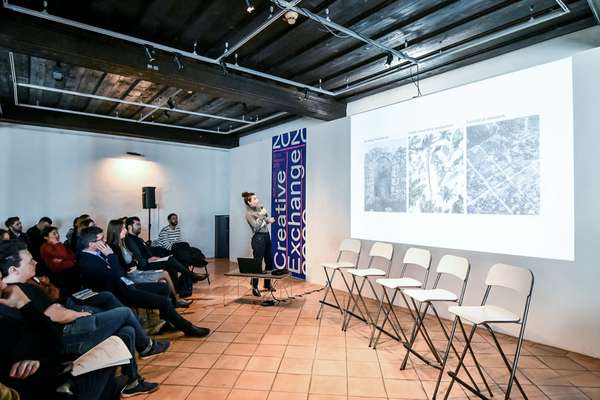
What about the Future Architecture Platform and the Digital Research Fellow as a part of Architectuul’s joint venue?
I am super grateful having in my professional and personal life both platforms. Through Future Architecture Platform I meet Architectuul, where we started developing an amazing professional and personal relationship. It was a unique opportunity that through FAP we managed not only to bring TiriLab into life but also to create further exciting collaborations.
I was also very happy to be nominated together with 45 degrees as a Digital Research Fellow and work with Architectuul. We continue with mapping all the best practices that we started in Greece and bring it in another scale, to start highlighting a network around Europe. I was imagining Architectuul as an active knowledge platform where practitioners, activists, researchers, local initiatives and practices can interconnect and create synergies.
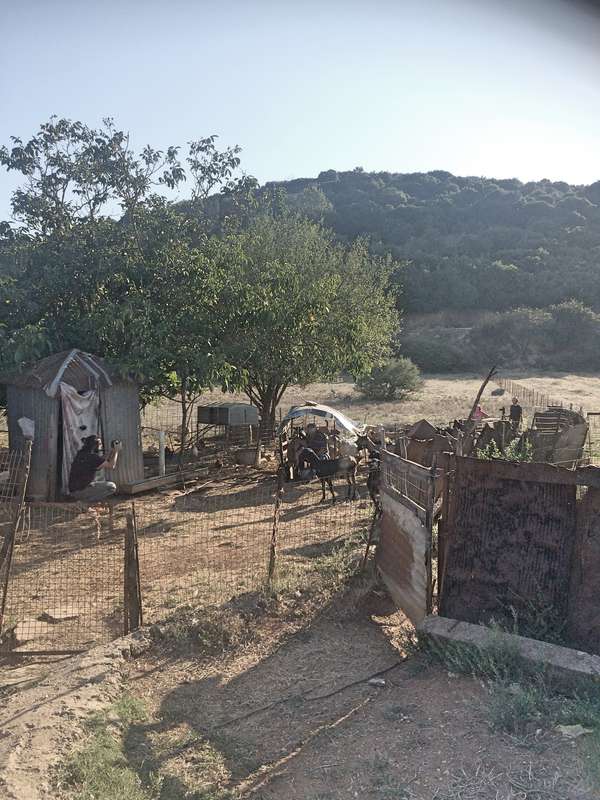
Your theoretical work and research is very much integrated into the core of different communities, you use new digital methodologies and technologies to enable forgotten communities?
CS: This is a hard question! My work is balancing between theory and practice. When I work close to local initiatives I am trying to understand their ways of living and producing and how to deliver this message to reach wider institutions and more specifically educational institutions. When I was working in Terreform, we started using multiple digital mapping techniques, integrating GIS in our research, collecting not only quantitative but most importantly qualitative data. Since then, I had this obsession on creating active digital maps that can operate as an open encyclopaedia or platform of practices, methodologies, local techniques and knowledges. I am really grateful of having the opportunity to be part of a new research project between TU Braunschweig and Central Saint Martins “Architecture after Architecture: Spatial Practice in the Face of the Climate Emergency” where I can explore these mapping methodologies together with an inspiring group of educators and researchers.
But you are still not finished, I heard about some UAU?
CS: UAU! is an amazing collaboration that we started recently and stands for Urban Activation Unit. It’s a joint venture between collectives, professionals, practitioners and educators. The three of us whom initiated UAU! don’t see it as a project that belongs to us. We see it as a bigger platform that can embrace alternative pedagogical experiments and qualities of third landscapes as ecosystems.
With UAU! we want to challenge the established way of transferring knowledge and we see it as a moving open pedagogic parliament. It starts its route within the Balkans because the three of us come from the Balkans. Our idea is to bring together people from urban and rural geographies, local residents with students, each time on a different program addressing issues that have to do with water recuperation, food production and local educational practices.
Its launch will be at the summer school Informal City: Temporal-Autonomous Utopias in Koper, Slovenia from 1-10 September. During this event we will co-build the Table on the Future, where participants will share food, exchange ideas and open new cultural dialogues regarding lively practices. This table will become an infrastructure where the production and distribution of food will be celebrated to address how can we establish ecological conscious communities. More news will follow from UAU! so stay Tuned!
Author: Boštjan Bugarič, Architectuul
